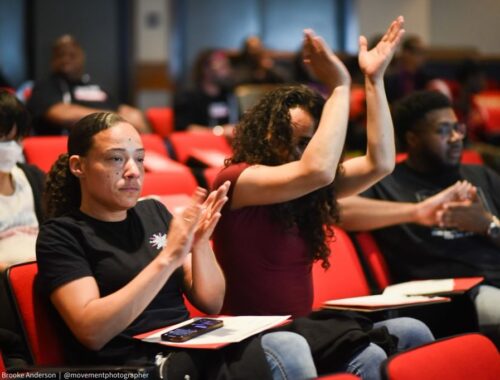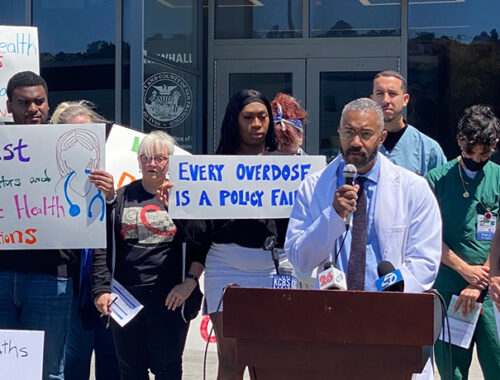San Francisco AIDS Foundation has been a go-to community resource for information about HIV, sexual health and substance use since our founding in 1982. Today, our 200 employees offer more services, programs and advocacy to more people than ever. Learn more about SFAF today on our mission, our work, our advocacy and our impact pages.
About San Francisco AIDS Foundation
San Francisco AIDS Foundation promotes health, wellness, and social justice for communities most impacted by HIV, through sexual health and substance use services, advocacy, and community partnerships. Founded in 1982, SFAF envisions a future where health justice is achieved for all people living with or at risk for HIV, ultimately striving for a day when race is not a barrier to health and wellness, substance use is not stigmatized, HIV status does not determine quality of life, and HIV transmission is eliminated. Each year more than 21,000 people rely on SFAF programs and services and millions more find advocacy tools and information they need online.












